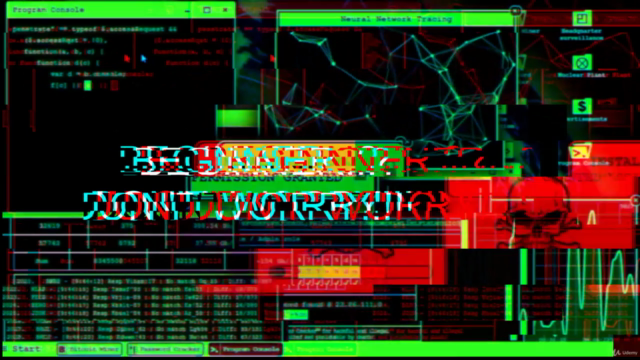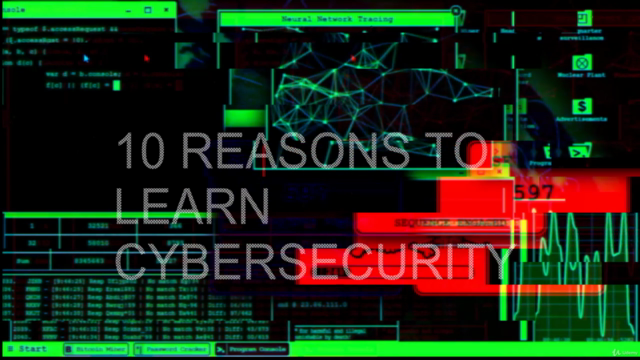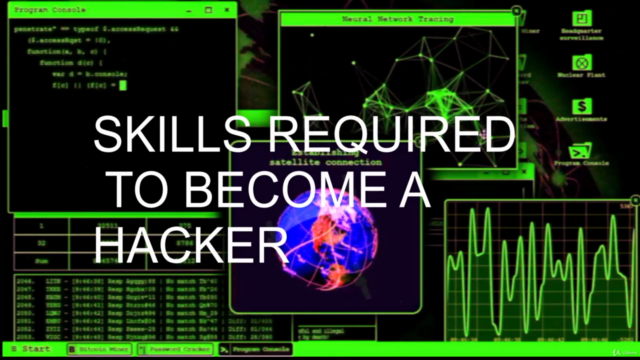Cyber Security and Ethical Hacking introduction course

Why take this course?
🔐 The Complete Beginners Guide to Cyber Security & Ethical Hacking: 2021 🚀 TDM (This Course is Made For You) if you're fascinated by the world of cyber security and ethical hacking! Are you tired of scratching your head over terms like "virus," "malware," "hacking," and "encryption"? Look no further, as this comprehensive course will demystify these concepts for you. 📚
Course Description:
Are you on the cusp of diving into the exciting realm of cyber security and ethical hacking? Whether you're a complete novice or have a basic understanding, this course is designed to cater to all levels, ensuring a fun and engaging learning experience. With real-world examples and a step-by-step approach, we'll cover everything from the fundamental concepts to advanced techniques. 🌐
Why Cyber Security Matters:
- Protecting Personal Information: Your data is precious – it must be protected.
- Safeguarding Financial Resources: Preventing fraud and theft in the digital economy.
- National Security: Protecting countries' infrastructure from cyber threats.
Top 10 Reasons to Learn Cyber Security:
- Gain a competitive edge in the job market.
- Enhance your understanding of digital risks.
- Develop critical thinking and problem-solving skills.
- Build a foundation for a lucrative career.
- Contribute to the safety of online communities.
- Understand the legal aspects of information security.
- Stay ahead of cybercriminals.
- Improve your understanding of IT infrastructure.
- Engage in interesting and challenging work.
- Secure your future with a skill set that's always in demand.
What is Hacking & Who is a Hacker?
Hacking isn't just about breaking into systems; it's about testing the limits of security measures to make them stronger. A hacker, at their core, is an individual who explores the limits and capabilities of a system or network. 🕵️♂️
Types of Hackers:
- White Hat: Ethical hackers employed by organizations to test their defenses.
- Black Hat: Malicious hackers intent on exploiting systems for personal gain.
- Grey Hat: Hackers who hack for fun but don't necessarily cause harm.
- Script Kiddies: Beginners who use pre-existing scripts or tools to hack.
- Nation State Actors: State-sponsored hackers with sophisticated resources and objectives.
How to Become a Professional Hacker:
- Understand the Basics of Cyber Security.
- Learn Programming Languages: Python, JavaScript, C++ are popular choices.
- Master Operating Systems: Gain expertise in Linux, the OS favored by professionals.
- Choose Your Specialization: From web to network security, find your niche.
- Stay Updated with Cyber Security Trends.
- Practice Ethically: Always use your skills responsibly.
The Roadmap to Becoming the Best Hacker:
- Learn the Fundamentals: Understand networks, systems, and security protocols.
- Advanced Techniques: Delve into encryption, penetration testing, and intrusion detection.
- Certifications & Education: Obtain certificates like CEH, OSCP, or CISSP.
- Community Engagement: Join forums, participate in Capture The Flag (CTF) competitions.
- Continuous Learning: Keep up with the latest threats and technologies.
Skills Required to Become a Hacker:
- Technical Proficiency: Knowledge of programming, networks, and systems.
- Analytical Thinking: Ability to analyze and solve complex problems.
- Attention to Detail: Spot subtle anomalies that others miss.
- Ethical Conduct: Maintain a strong ethical foundation in your work.
Programming Languages & Their Importance in Cyber Security:
- Python: Known for its simplicity and versatility.
- JavaScript: Essential for web security.
- C++/C: Offers deep insight into system programming.
Why Linux is the Best Operating System for Hacking:
Linux provides robust tools and environments that are essential for ethical hacking and penetration testing. Its open-source nature and vast community support make it a platform of choice for security professionals. 🐧
Best Linux Distributions for Hacking Purposes:
- Kali Linux: The go-to distribution for penetration testers.
- Parrot Security: Optimized for security analysis and forensics.
- Bugtraq: Designed with hacking tools for vulnerability analysis.
Cyber Security Certificates to Undertake:
- Certified Ethical Hacker (CEH): A globally recognized certification in the field of ethical hacking.
- Offensive Security Certified Professional (OSCP): Validates your skills as a penetration tester.
- CISSP - Certified Information Systems Security Professional: A standard for any cyber security professional.
What is a Cyber Attack & Types of Cyber Attacks:
Cyber attacks come in various forms, from phishing attempts to sophisticated ransomware. Understanding these attack vectors is crucial for anyone looking to secure systems and protect data. 🛡️
Enroll Now!
Don't let this opportunity slip by. Enroll in "The Complete Beginners Guide to Cyber Security & Ethical Hacking: 2021" today and embark on a journey that will transform you into a cyber security expert. Secure your future, protect digital landscapes, and become an integral part of the global fight against cyber threats! 🚀💻
Ready to dive into the world of cyber security and ethical hacking? Click "Enroll Now" and take the first step towards mastering this critical skill set!
Course Gallery




Loading charts...